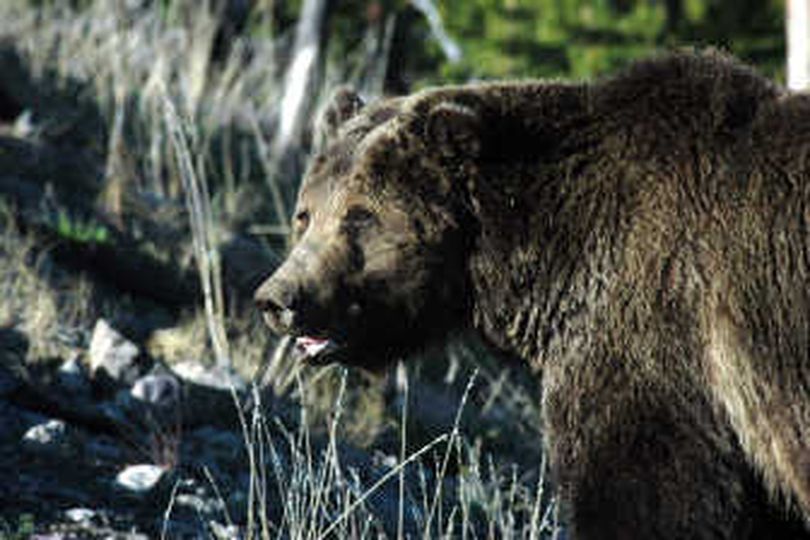Bear aware: Tips for camping in bear country

WILDLIFE -- The summer camping season is kicking into high gear, putting more people out among wildlife, including bears.
The Grizzly Bear Outreach Project offers basic tips to help campers avoid attracting bears, which can be dangerous to people and destructive to their camping gear.
Worse, a bear that finds value -- notably food -- in raiding camps almost surely will become a repeat offender that ultimately will have to be killed.
Click "continue reading" to refresh your memory on tips that come from years of case studies:
AT YOUR CAMPSITE
Camp setup
- First: Be aware of your surroundings. Look at them from a bear’s perspective. Investigate your site before setting up camp, and then establish a clean camp that is free from odors.
- Avoid camping next to trails or streams as bears and other wildlife use these as travel routes.
- Avoid camping near natural bear food sources such as berries.
- The 100-yard rule: When not camping in a National Park or other areas with designated camping sites, locate your cook area and food cache at least 100 yards downwind from your tent.
Food storage
- Never leave food unattended in your campsite unless it is properly stored.
- Do not bring food or odorous non-food items into your tent. This includes chocolate, candy, wrappers, toothpaste, perfume, deodorant, feminine hygiene products, insect repellent, and lip balm.
- Avoid canned foods with strong odors such as tuna.
- Place food in bear-resistant storage containers (available at some campgrounds) or store it in your vehicle.
- Where this is not possible, cache your food by placing it inside several layers of sealed plastic bags (to reduce odor) and a stuff sack (waterproof “dry bags” work well). Then hang it as described below.
- Remember to hang pots, utensils, cosmetics, used feminine hygiene products, toiletries, and any other odorous items with your food and garbage.
Cooking
- Never cook or eat in your tent. Food smells may attract bears and other wildlife.
- Wash all dishes and cans immediately after eating. Remember the 100-yard rule: When not camping in a National Park or other areas with designated camping sites, wash the dishes and dump the dishwater at least 100 yards from your campsite.
- If possible, remove the clothing you wore while cooking before going to sleep. Store these clothes in your vehicle or with your food and garbage (see above).
Garbage disposal/storage
- Never leave garbage unattended, unless it is properly stored.
- Do not bury your garbage. Animals will easily dig it up.
- Garbage should be deposited in bear-resistant garbage cans or stored in your vehicle until it can be dumped.
- Remember: “Pack it in, pack it out.” This includes ALL garbage (including biodegradable items such as fruit peels).
